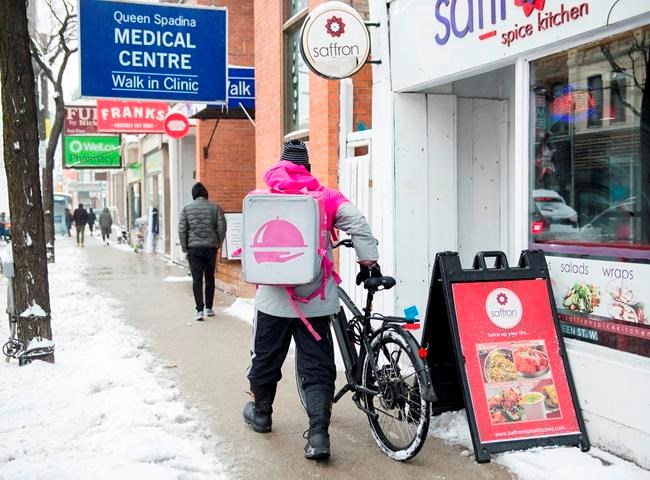MONTREAL — Canadian's budgets are being stretched thin as the cost of living climbs — and to compensate, some are taking on a side hustle.
From reselling used items or dog walking to taking shifts driving for delivery services and acting as a brand ambassador, there are plenty of ways to earn some extra cash.
Erin Rappaport, a Montreal-based human resources generalist, has made extra money in a few different ways.
Rappaport has worked as a brand ambassador for various companies, offering free samples and proving product information at famous sites around Montreal such as the Bell Centre.
She also uses reselling platforms such as Poshmark and Facebook Marketplace to sell used shoes, clothing and furniture from around the house.
"I have weeks where I have four sales and then sometimes I have none, it really depends," said Rappaport.
New data from professional service company Accenture found that 41 per cent of Canadians plan to take up a side hustle such as babysitting, dog walking, and selling items online to earn additional income before the holidays.
Another 39 per cent said they would take on additional work hours to make up the extra cash, according to the survey of 1,510 Canadians who had purchased an item for personal use in the last six months.
Whether it is to save money in the long term or the short term, the first thing to do is to indicate the pressure point of a budget, said Anne Arbour, spokeswoman of the Credit Counselling Society
Then, understand how much time is available for the side hustle and what strengths could be used to make additional income, said Arbour.
However, there are additional factors to consider in pursuit of additional income such as reporting the earnings and claiming deductions and making sure there is not a conflict of interest with a primary source of income.
"If the purpose of this is to improve your financial situation check that the extra income isn't putting you in a higher tax bracket, so you might inadvertently be hurting yourself more than helping yourself," said Arbour.
Having a side hustle grew in popularity when many people had more time on their hands during COVID-19 lockdowns. And for those who were laid off during the pandemic, their side hustle became a full-time reality.
One side hustle that became particularly popular during the pandemic was gig economy work such as driving for a ride share company or a food delivery service.
In 2017, Jennifer Scott began working full-time as a bike carrier, delivering food for a number of delivery apps in Toronto, and has some words of caution for those with thoughts of joining the industry.
Often having to navigate traffic and challenging weather conditions, Scott said she injured her knee and had to switch to delivering on foot.
"I am constantly reminded that if I'm hurt at work when I'm delivering in these conditions, I have nobody, I have only myself to try and figure out how to deal with that," said Scott.
Workers in the gig economy are considered private contractors, which means they are not entitled to similar employment protections as other workers.
“There are no sick days there," said Scott. "There's no insurance, there's nothing."
Arbour said that when picking up an additional source of income, it is important to check with insurance to see what needs to be covered.
But for some, such as Scott, additional protections for the job such as private health care are a luxury.
"For folks who have that, that's excellent, but for most people who do this work, it's not possible," said Scott.
Whether it is delivering food or taking on shifts as a brand ambassador, it should be considered that when combined with a full-time job, the extra work hours may lead to burnout or exhaustion.
While taking on a side hustle while working full-time is tiring, Rappaport said that it is the additional money that keeps her going.
This report by The Canadian Press was first published Dec. 6, 2022.
Caitlin Yardley, The Canadian Press



